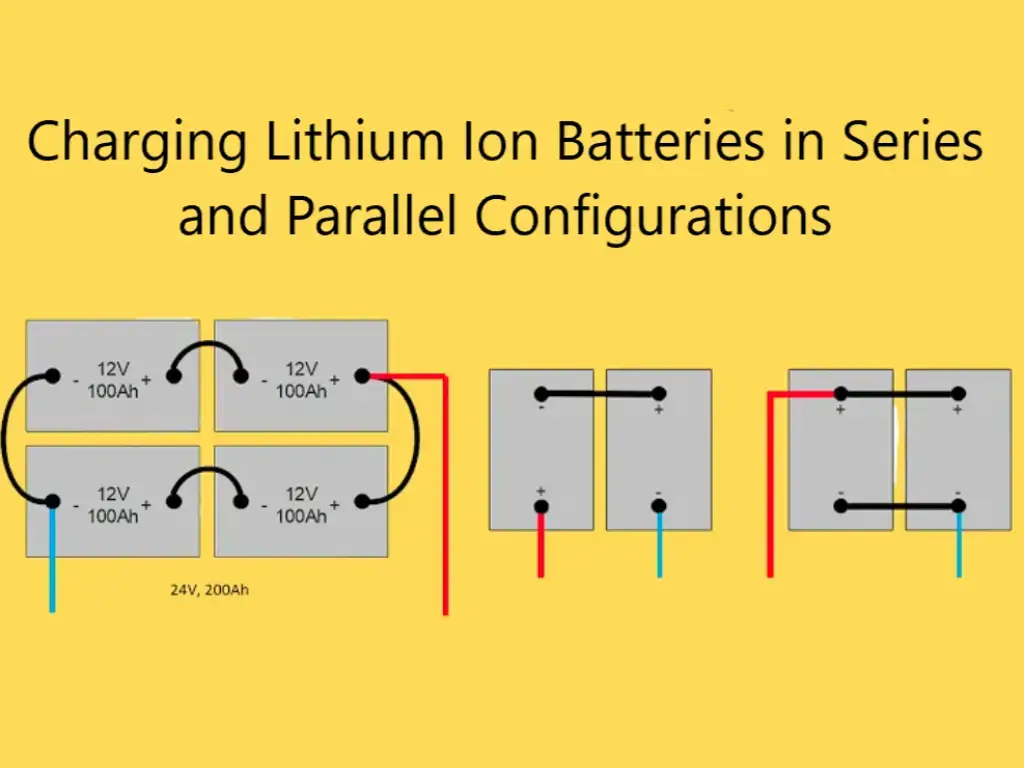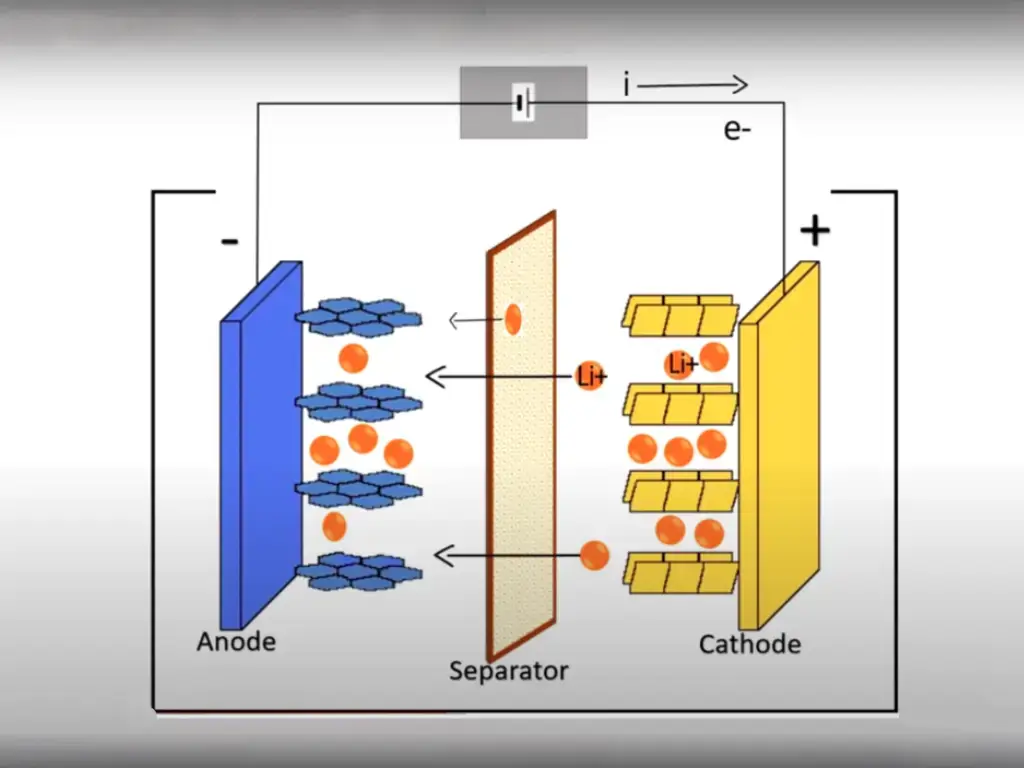Marine energy storage systems are not like onshore, regular power storage systems. They require high energy density, long cycle life, and a compact-sized system to fit in small spaces. For maritime and ocean energy applications, Lithium-ion batteries fulfill these requirements perfectly.
Lithium batteries do not require frequent maintenance and repair and are a reliable power source for remote locations. Moreover, they integrate well with hybrid energy storage systems and are environment-friendly.
Let’s explore what factors make these battery storage systems the best choice and which system might be the best choice for you.
Table Content
Marine Energy Storage Systems

Let’s take a brief look at marine energy storage systems to understand basics of the ocean energy storage.
Marine energy storage systems are not like onshore, regular power storage systems. They require high energy density, long cycle life, and a compact-sized system to fit in small spaces. For maritime and ocean energy applications, Lithium-ion batteries fulfill these requirements perfectly.
Lithium batteries do not require frequent maintenance and repair and are a reliable power source for remote locations. Moreover, they integrate well with hybrid energy storage systems and are environment-friendly.
Let’s explore what factors make these battery storage systems the best choice and which system might be the best choice for you.
Battery Energy Storage System (BESS)
BESS, or Battery Energy Storage Systems are increasingly becoming popular to store energy from various renewable energy resources. As it’s said, the sun doesn’t shine and the wind doesn’t blow all the time, so storing energy from these resources is essential. For shipboard power systems, BESS can help harness marine solar power and keep your systems running around the clock. These systems can supply enough power to keep marine energy storage systems up and running. The process starts with energy generation from any source. The next step is transmission and the battery storage systems hold that electricity to supply power at demand.
Containerized Battery Energy Storage System (CBESS)
The main difference between BESS and Containerized Battery Energy Storage System is that a BESS system is a customized system that consists of battery modules, power conversion equipment, and control systems, typically housed in a dedicated building or facility. A Containerized Battery Energy Storage System, on the other hand, is a standard packaged unit consisting of batteries, power electronics, thermal management systems, and control systems. The benefit of a CBESS includes easy transportation, quick deployment, and modular expansion of the energy storage system. The container can be connected to a power grid or any other energy system.
Hybrid Energy Storage Systems (HESS)
HESS, or Hybrid Energy Storage System, contains two or more energy storage systems that result in improved performance and reliability. It has many advantages over single storage devices including flywheels, fuel cells, supercapacitors, and batteries. This system has gained a good reputation in recent years for storing energy in microgrids, EVs, marine storage systems, and electric ships. The system runs smoothly through the synergetic integration of multiple technologies, each complementing the other to improve performance. HESS is much better in reliability, and lifespan, and is much more efficient. Moreover, the system works perfectly for marine energy storage applications.
Commercial Battery Storage Systems
Large-scale battery storage systems are revolutionizing commercial marine energy storage. With the focus shifting toward green energy and sustainable resources, these systems offer multiple benefits. One of the key advantages of commercial battery storage systems for marine storage is their enhanced energy efficiency and tendency to provide reliable power. These storage systems can store energy from marine sources such as offshore wind farms or solar installations and provide the energy when needed.
Challenges in Marine Power Supply

Marine energy storage systems face unique challenges due to the demanding nature of maritime operations in harsh maritime conditions. Some of the key challenges include:
-
- Variability of Energy Sources: maritime energy supply comes from multiple energy sources including wind, tidal, solar, and fossil fuels. The variability of resources requires effective and efficient coordination through reliable storage systems.
-
- Remote and Offshore Locations: Marine operations mostly take place in remote and offshore locations, miles away from traditional grids. Reliable energy storage is therefore more crucial than onshore locations.
-
- Harsh Environmental Conditions: Marine operations take place in a harsh environment containing conditions including storms, high winds, saltwater corrosion, and temperature fluctuations. These factors make it essential to keep a reliable power source.
-
- Space and Weight Constraints: Space, volume, and weight are important factors when considering power storage for marine operations. For these applications, compact and efficiently designed to fit within limited space but keep the system running.
-
- Power Quality and Stability: Reliable power supply with a stable frequency is a pre-condition for running marine operations smoothly. Fluctuations in the power supply can damage sensitive equipment and cause downtime, equipment failure, and operational issues.
Advantages of Lithium Batteries
Lithium battery-based marine energy storage systems have many advantages over other systems.
High Energy Density for Optimal Storage
Marine operations and installations, where space is a critical factor, rely on high energy density. It refers to the amount of energy stored per unit volume or mass of the storage medium. Lithium-ion battery storage systems are capable of supplying more power compared with other similar systems. They allow marine operators to store energy in a lightweight and compact form without losing energy quality. It also allows longer duration of energy storage thus enabling smooth operations for systems operating on their own in the offshore locations. Lithium-based batteries such as LiFePo4 are a perfect solution for extended voyages.
Long Cycle Life for Sustainable Operations
Cycle life means the number of charges and discharges a system can handle while maintaining its performance within acceptable parameters. In marine operations, long cycle life is a crucial factor as maintenance and replacement is a difficult process. A system with long cycle life is sustainable and there’s less overall operational cost. Moreover, long cycle life is also vital for keeping the environment safe and reducing carbon footprint. Frequent replacement and maintenance impact the environment negatively and are therefore not desirable. That’s why lithium battery storage systems are the best choice for marine operations.
Fast Response Time for Efficient Power Delivery
Fast response time is another factor that’s crucial in selecting a storage system for marine energy storage. It refers to the speed at which a system adjusts to changes in power demand or supply. The system provides optimum power even when the output is fluctuating thus protecting the expensive equipment and keeping the system steady. Since the marine environment and operations are dynamic and demanding, fast response time is essential to maintain optimal power supply. Lithium battery systems are famous for their fast response time and are therefore the first choice for marine systems by experts.
Safety and Environmental Considerations
Marine operations require utmost care for the safety and well-being of the personnel involved and the ecosystem in which the system is operating. Marine energy storage systems can cause a lot of damage to the environment if not safety considerations are ignored. Lithium battery systems meet environmental and safety standards and are safe to use in remote locations. They are corrosion-resistant and contain recyclable parts that minimize the carbon footprint.
Choosing the Right Lithium Batteries
You’ve seen the advantages of lithium batteries but not every battery system will work for you. To choose a reliable and sustainable power storage system, you should consider specific factors.
Firstly, battery capacity and energy density should be evaluated to ensure optimum power demands without interruption. You’ll need to calculate the total load you’re system needs and use a battery system that’s more than capable to handle that load.
Secondly, the longevity of the marine energy storage system should be considered. Marine operations are mostly remote and replacing the parts or the whole system is extremely expensive. So, chose a system with a long cycle and working life.
Thirdly, your system will most probably be installed in harsh climate conditions where there’s more wear and tear than ground systems. For that, you’ll not only need a resilient battery system but will also need to consider the packaging of the system to protect it from the environment.
Finally, the safety of the personnel and the environment should be a prime consideration when you’re planning to install a new system. Lithium-ion batteries are a good option because they are safe for both environment and people working around them.
Lithium Batteries for B2B Marine Storage
If you’re looking for a compact, lightweight, safe, and reliable battery storage system for marine applications, Lithium is your best bet. These batteries are popular for a reason. They deliver high-quality energy and have a long life compared with other similar systems.
Lithium batteries are extensively used for marine applications. Some of the areas include:
-
- Hybrid electric vessels
-
- Offshore renewable energy integration
-
- Emergency power backup
-
- Unmanned autonomous systems (AUVs, ROVs, USVs)
-
- Electric propulsion systems
-
- Energy storage for remote locations
-
- Marine research and exploration equipment
-
- Submarine and underwater vehicle power systems
-
- Portable power for marine electronics and devices
-
- Electric propulsion for recreational boats and yachts.
Final Thoughts
Lithium batteries are highly recommended for power storage for onshore applications. However, these powerful battery systems are equally good for marine energy storage systems. With Lithium batteries, you’ll experience fast response time, high energy density, and the peace of mind that comes with using sustainable sources for environmental protection.
If you’re not already using lithium battery systems then you should not waste any time. It’s time for you to transform your marine energy storage with powerful Lithium batteries.




